Scientific Board
Leader in developing, producing
and commercializing pharmacogenetics
tests for cancer precision medicine.
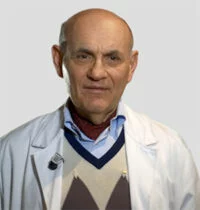
Stefano Pileri
Chair of the board
Author of 1,186 scientific reports (711 quoted in PubMed or in press with a total IF of 6,260.550) and regular invited speaker at International Meetings. Co-author of the „Revised European American Lymphoma Classification“ (1994) and the International Consensus Classification (2022). Co-editor and Co-author of the fourth Edition of the WHO Classification of Lymphomas and Leukaemias (in 2008) and its revision in 2017. Past-President of the European Association for Haematopathology. H.C. degree in Medicine at Athens University. Ranked 22nd among the Top Italian Scientists in the field of Medicine. H-index = 129. Past-President of Bologna Rotary Club (2004-2005).
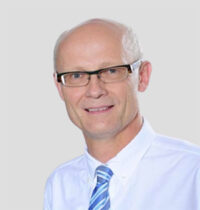
Reinhard Büttner
Reinhard Buettner is a pathologist with specific expertise in Molecular Pathology and Lung Pathology and serves as one of the Speakers of the German Network Genomic Medicine nNGM and as a member of the National Academy of Sciences, Leopoldina.
He has published more than 600 original publications, served as Dean of the Medical Faculty at Bonn University, as a member of the Board of Trustees, German Cancer Aid, the past president of the German Division of the International Academy of Pathology, and will serve as the president of the German Cancer Congress, DKK 2024 in berlin.
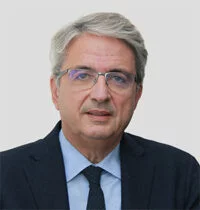
Riccardo Dalla-Favera
Dr. Dalla-Favera’s work is widely recognized with numerous National and International prizes and awards, including two NIH MERIT Awards, the 2006 William Dameshek Prize for Outstanding Contribution to Hematology from The American Society of Hematology, the 2012 Alfred Knudson Award from the National Cancer Institute, and in 2014, the OncLive Giants of Cancer Care Award. Dr. Dalla-Favera is an elected member of the National Academy of Medicine and the National Academy of Sciences, USA
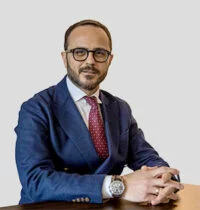
Umberto Malapelle
His main research interest is in the field of genomic biomarkers validation and testing for predictive information in the field of lung cancer, metastatic colorectal cancer, melanoma and gastrointestinal stromal tumor. Moreover, he has developed skills in tailoring Next Generation Assays for a number of different applications with a special focus on the simultaneous detection of clinically relevant alterations (i.e., EGFR mutations, ALK translocation, PD–L1 expression) in the routine setting including handling of different sample types, such as tissues and/or liquid biopsy specimens.
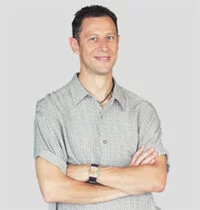
Bertrand Nadel
With more than 30 years of experience in onco-immunology research, Bertrand Nadel has gained, since 2015, extensive parallel experiences in the creation, management, and direction of federative academic structures, bridging public research and industry, first as Director of the Canceropole of southern France PACA region (2015-2017) and as Director of a Carnot Institute (2018-present).
During the last 10 years, He has acquired the appetence and know-how for building, developing, professionalizing, and managing networks and fruitful partnerships between academic research (basic, translational, non-clinical, and clinical) and biopharma.
Mr. Nadel’s lab (http://www.ciml.univ-mrs.fr/science/lab-bertrand-nadel/home) focuses on the (epi)genetic mechanisms of oncogenesis in human lymphoma/leukemia and aims to identify bio-markers, targets and innovative therapeutic approaches in partnership with clinics and Biopharma.
Among others, they contributed to deciphering the natural history of follicular lymphoma pathogenesis and are now hunting the precursor cells seeding relapses using state-of-the-art omics technologies. The CALYM Carnot Institute on lymphoma (http://www.calym.org/), is a nationwide consortium aiming to foster innovation, research, and development between academia and industry.
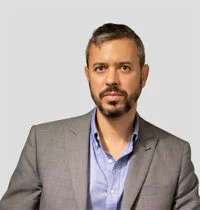
Raul Rabadan
From 2006 to 2008, Dr. Rabadan was the Martin A. and Helen Chooljian Member at The Simons Center for Systems Biology at the Institute for Advanced Study. At Columbia, he has put together a highly interdisciplinary team of researchers from the fields of mathematics, physics, computer science, engineering, and medicine, with the common goal of solving pressing biomedical problems through quantitative computational models. Rabadan’s current interest focuses on uncovering patterns of evolution in biological systems—in particular, viruses and cancer.
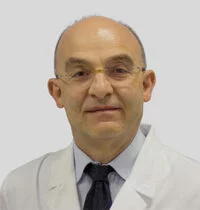
Giovanni Scambia
Scientific Director of Fondazione Policlinico Universitario Agostino Gemelli IRCCS, Rome, Full Professor of Obstetrics and Gynaecology, Catholic University, Rome, Italy, Professor Scambia is specialized in gynaecological cancer treatment and research. He has studied and developed innovative surgical approaches for the cure of gynecological cancers and has been invited professor in several academic hospitals both in Europe and outside Europe. He is considered an opinion leader in the field of gynecologic oncology. He has published approximately 1500 scientific works relating to topics of experimental and clinical interest in international journals.
President of Board of Directors of the European Society for Gynaecological Endoscopy of E.S.G.E., Member and Vice President 1st Section of Consiglio Superiore di Sanità, Italiana Ministry of Health, Member of the Medical Professional Negligence Commission, Ministry of Justice, he is also Coordinator of the guidelines on the conservative therapy of uterine tumors and ovarian tumors of “European Society of Gynaecological Oncology – European Society of Human Reproduction and Embriology – European Society for Gynaecological Endoscopy”.
